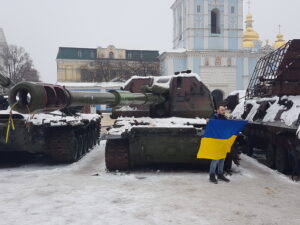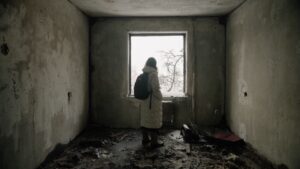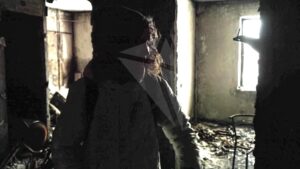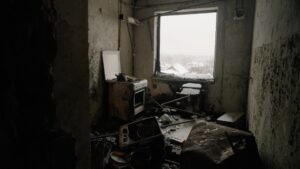UKRAINE
UKRAINE
WARSAW 1944, UKRAINE 2022
80 years ago Warsaw was completely destroyed by the Nazis. Thousands of. people died defending the city. The Old Town has been painstakingly rebuilt, brick by brick, from the rubble, using photographs and architectural drawings hidden during the war. And that's what Putin is doing today to Ukraine, trying to raze it to the ground, so nothing is left. In contrast to Warsaw, Kyiv, when I arrived in December ‘22, was dark. The light, such as it was, was a yellowish sepia, creating a city of shadows, through which its citizens trudged and sloshed. No Christmas, no fairy lights, no joy. Just the threat of drones and more destruction. I decided to make the trip because of a young Ukainian woman, who waited for me outside the stagedoor in London in August, four months before. She repeated the most lyrical passage of the play to me, as tears poured down her face. All I had to offer was my solidarity. The Ukrainians, certainly the ones I've been lucky enough to meet and work with, are resolute and courageous and determined. They've lived under Russia's crushing boot for long enough. I performed at the ProEnglish Theatre, run by the artistic director, Alex Borovensky, and at Les Korbas, where Neda Nezhdana, the writer of the play, works. She was in tears at the end of both performances and spoke very movingly of the significance of the title of the play, Pussycat in Memory of Darkness, and of her own refusal to leave her country. I've met her many times since and shared a flat with her in Wiesbaden in February '24. The stress of living under continual threat takes a terrible toll on people, including Neda. It never leaves her, whether in Kyiv or in the temporary safety of Germany. Wherever she is, she is always in Ukraine.
On that first visit in ‘22, we left the night following the second show.
The railway station seemed spectral - pitch dark outside. I worried that the trains had been cancelled (there were sirens during the afternoon). People were sprawled on ancient leather sofas upstairs in an enormous, shadowy and very ornate saloon, presided over by a woman you paid in order to enter. The train left at midnight and we trudged through the dark to the platform. There was something ancient about all these figures plodding along, some shrouded in blankets, the older women looking as though they'd emerged out of the darkness of an Eastern Europe, completely unchanged for hundreds of years.
AUGUST ’23
AUGUST JOURNEY. LONG AND ARDUOUS. SOLDIERS ON GUARD...
I went back to Ukraine in August ’23, together with the architect, Andrew Cowan, who’d come with me the first time and who subsequently wrote an article published by Forbes Magazine, on the subject of the rebuilding of Ukraine. It was summer in Kyiv and you could be forgiven for forgetting there was a war on. It was hot, there was a flourishing café culture, girls wandered by in their summer dresses. There was laughter coming from hidden corners, flowers offered by random passers by.
THEY NEED TO KNOW THEY ARE NOT FORGOTTEN…
I went back, not only because I was invited, but because I know how much the solidarity and presence of western Europeans means. Or meant. The war’s gone on since February ’22, people have begun to tire of it here. But in Ukraine, thousands of people are dying on the battlefield, while millions more have lost their homes and been forced to flee. People are trying to keep their spirits up, now more than ever.
I found a young film crew while I was in Kyiv in December ‘22, because I knew I needed to document what I saw. I told them I wasn't interested in their filming my performance (which they did anyway), that that wasn't the reason I needed their services. I wanted this tiny play - the story of one desperate woman - to be seen in a wider context. To that end, we went to a small, sad town called Borodyanka and filmed inside a couple of the apartment buildings that had been bombed from the air by Russia. The horror of what Russia is doing is there, in those buildings. These were ordinary people, living ordinary lives, who were buried in the basement where they had taken shelter, when the buildings collapsed on top of them. They lay in their cellar grave for forty nights before the Ukrainians retook the town. On the same day of our visit to Borodyanka, we stopped at a place outside Bucha, now referred to as the Car Cemetery. Cars are piled up, one on top of the other - automobile versions of human beings scrambling to get out of danger. All the occupants died. They were shelled and machine-gunned. One car bore the traces of a woman's hair and brains, after her head was severed from her body. This is now Ukraine.



